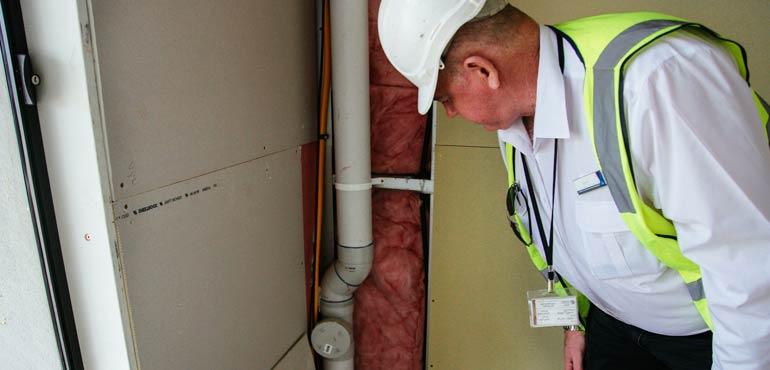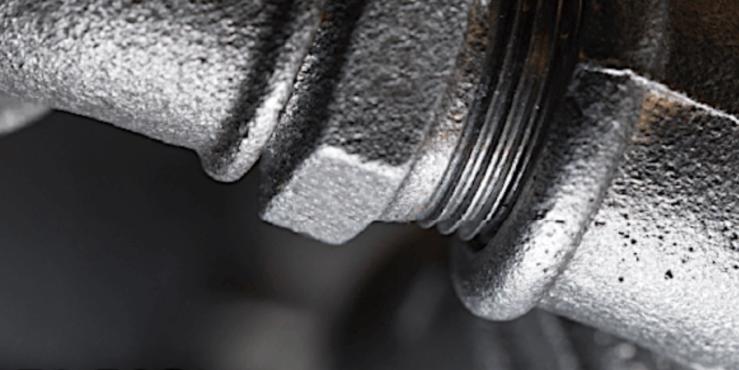Phishing alert: A phishing scam aimed at QBCC customers has been reported. Learn more...
Evidence of experience form—Occupational plumber and/or drainer
Regulatory Report January-June 2025
Plumbing audits: what to know
Everything you need to know about the QBCC’s plumbing audit program.
This year’s notifiable work audit program is underway and includes spot-check audits of contracting licensees, with a particular focus on areas where Form 4/4A registrations are low.
Why we conduct audits
Audits are about maintaining the integrity of the plumbing profession. By verifying that notifiable work is correctly documented, we can:
- provide in-person support and guidance to licensees
- catch problems early to avoid costly issues
- ensure work meets safety and compliance standards.
What to expect if you're selected
If you’re selected for an audit, you’ll be asked to provide recent invoices for plumbing work. To make the process smooth and efficient, it’s important to make sure your invoices:
- are clear and legible (no blurry scans or photos)
- include specific details about the work performed
- list the correct site address and building reference (if applicable).
Once your documents are submitted, a member of the QBCC audit team will review them and get in touch if anything further is needed.
Tools to help you stay compliant
To help you stay on top of your obligations, the QBCC website offers a range of practical tools and resources:
- a breakdown of what counts as notifiable work
- an interactive checker to see if your job needs a Form 4
- tips on how to lodge your Form 4/4A correctly.
These resources are designed to make compliance easier and more accessible, so you can focus on doing great work.
We’re for supporting licensed professionals, and you can help
Unlicensed contracting is against the law and undermines the time, training, and investment that licensed plumbers put in to do things the right way. It diverts work away from legitimately qualified professionals and puts public safety at risk.
That’s why we’ve also made it easier to report wrongdoing through our updated complaints form.
If you’ve seen something that doesn’t sit right, you can raise a concern without revealing your identity. And while we’ll do our best to act on anonymous reports, our investigations team may need to follow up for additional details, some of which could be identifiable. Rest assured, we’ll maintain strict confidentiality throughout the process.
Have something to report? Submit your plumbing or drainage complaint here
Let’s work together to keep our high standards and protect the trade for all the future plumbers out there.
Stay ahead in service trades: The Service Trades Council’s role in industry collaboration
The Service Trades Council (STC) plays a vital role in connecting and supporting professionals across the service trades industry.
Whether you’re a licensed plumber, fire protection specialist, drainer, or work in air-conditioning and mechanical services, staying informed about industry developments and regulatory changes is crucial.
STC actively collaborates with key industry regulators like the Queensland Building and Construction Commission (QBCC) and local councils to ensure the voice of service trades professionals is heard. Through these partnerships, STC provides direct access to important updates on compliance, licensing, and emerging best practices.
By engaging with STC, trades people have the opportunity to:
Gain insights from respected industry leaders and regulatory experts
Participate in meaningful dialogue that shapes the future of the sector
Network and build connections with peers and stakeholders across the industry
STC’s commitment to open communication and advocacy makes it a trusted hub for anyone working within service trades, fostering an environment where collaboration and continuous learning thrive.
Bundaberg Services Trade Council Forum
For plumbers, drainers, fire protection workers and other service trades
Details
- Registration at 3:30pm
- Event from 4-7pm
Why attend?
Do you want to know more about the changes happening in your industry? Are you keen to have your say and share your views?
Join the Service Trades Council on Wednesday 15 October 2025 for a free industry forum tailored to the plumbing, drainage, fire protection, air-conditioning and mechanical services sectors. Get important updates from regulators and local council representatives—have your say.
What’s on the agenda?
- Welcome and STC overview from STC Chair Penny Cornah
- Local update from Mark Parsons, Plumbing Assessment & Compliance Team Leader, Bundaberg Regional Council
- Compliance and notifiable work insights from Rhyce Bullimore, QBCC
- Service trades unit update from Adela Padurean and Jordan Collins, QBCC.
A panel-style Q&A session featuring representatives from:
- Chris McCahon, Assistant Commissioner Regulatory Standards and Support (QBCC)
- Rhyce Bullimore, Acting Principal Advisor Plumbing and Pools Investigations (QBCC)
- Adela Padurean, Manager Services Trades
- Mark Parsons, Plumbing Assessment & Compliance Team Leader (Bundaberg Regional Council)
- Anastasia Tritchler, A/Executive Director Building Policy from the Department of Housing and Public Works
Join us for networking opportunities before and after the forum.
Licence application form—Mutual recognition occupational plumber and/or drainer
Occupational licence application form—Plumber and/or drainer
Licence renewal application form—Occupational plumber or drainer
Backflow prevention revalidation form—Occupational plumber or drainer
Pagination
- Page 1
- Next page


